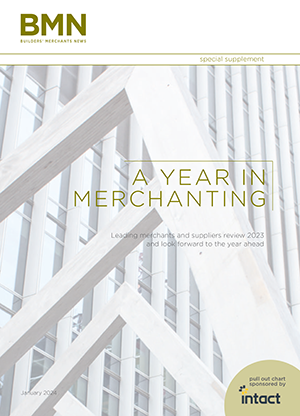In an exclusive report first published in July, Builders’ Merchants News followed up the work the BMF has been doing to ensure merchants aren’t left out of the equation when the Energy Bill finally makes its way through Parliament.
As the Government’s Energy Bill edges closer to becoming law, the Builders’ Merchants Federation has been working to try to prevent the interests of members from being damaged in a repeat of the CERT fiasco.
The BMF believes the Green Deal – the major part of the Bill – relies too heavily on big corporates and favours vertically-integrated businesses that will dominate from the start. Builders’ Merchants News spoke to the BMF for an update of how the industry has moved on since our report in April.
What’s in the Bill?
The Energy Bill is a set of proposals from the Department of Energy & Climate Change (DECC) that the Government hopes MPs will pass into law in September.
The majority of the Bill brings in the Green Deal. This is a financial scheme to allow voters to have energy-efficiency work done to their property on a ‘pay-as-you-save’ basis. It is due to start in October 2012. This Bill also introduces:
- A new Energy Company Obligation (ECO) to help certain consumers who need extra financial support.
- A bid to make energy performance data from Energy Performance Certificates more widely available.
- The roll-out of electricity smart meters.
- Powers to require cheapest tariff information to be included on energy bills.
The Green Deal and commercial buildings
The Green Deal is a way to enable voters to have energy-saving measures fitted without being liable for the capital outlay. Costs are recouped over a fixed period, in instalments, through electricity bills. A smart meter will be fitted to accurately record the energy used.
The Green Deal is not a conventional loan, because the costs relate to the building – at the smart meter – not the inhabitants.
The Consumer Credit Act 1974 is being amended to allow for the necessary credit agreements. When you sell and move, outstanding repayments pass to the next occupier. It will be recorded in the Energy Performance Certificate.
The cost of the work cannot exceed the estimated cost savings on an average bill for the duration of the arrangement. This is called the ‘Golden Rule’. If this calculation is not met, the work cannot proceed, although there is nothing to stop people doing the job outside the scope of the Green Deal.
Associated conditions are proposed on recommendations made by an assessor, notably:
- An estimate of the likely Energy Bill savings if the improvements are carried out.
- An estimate of the likely period over which the improvements will generate those cash savings.
New Energy Company Obligation (ECO)
This new obligation on gas and electricity suppliers will replace CERT, CESP and Warm Front at the end of 2012.
The Government wants to concentrate the new ECO on low-income, vulnerable households and properties that cannot achieve financial savings to satisfy the Golden Rule without a measure of additional support on top of Green Deal finance.
What is the BMF doing?
BMF staff have been working on the proposals for months to ensure the interests of merchants and suppliers are heard. BMF secretary Peter Matthews and policy manager Brett Amphlett are talking to various parties to shape and inform the Government’s proposals.
Westminster
Every day the Bill was debated, BMF staff were present to lobby MPs to try to change those aspects merchants won’t like. BMF was the only industry voice to attend proceedings – no other trade association was present. Throughout the passage of the Bill, BMF staff submitted several papers with industry arguments to illustrate likely consequences – eg VAT rates and rules.






